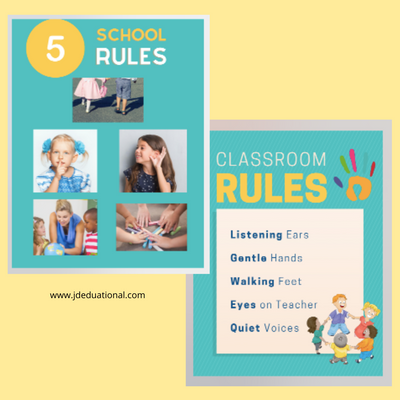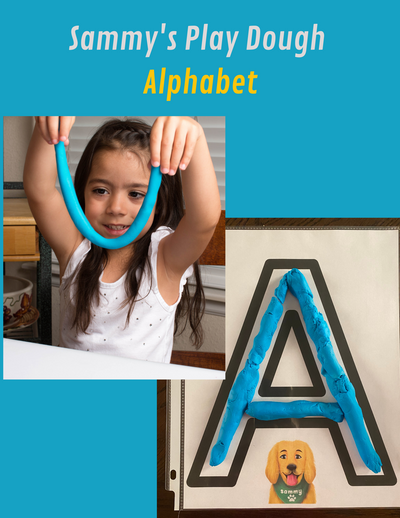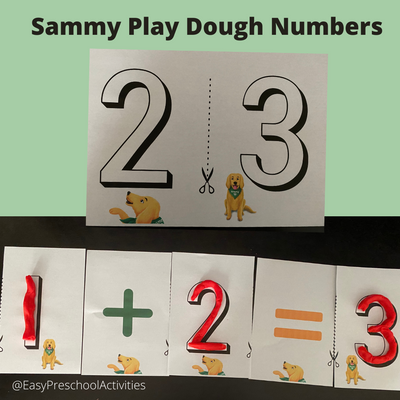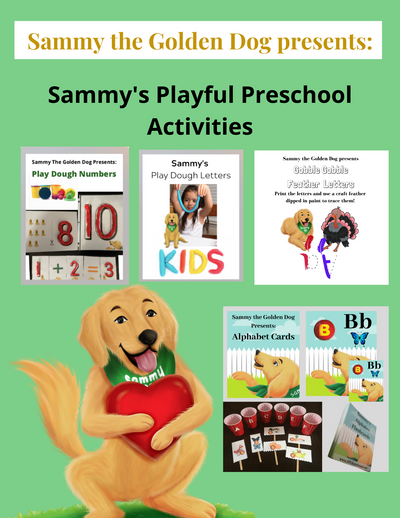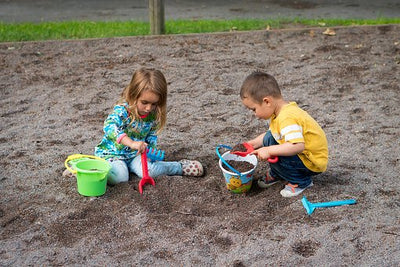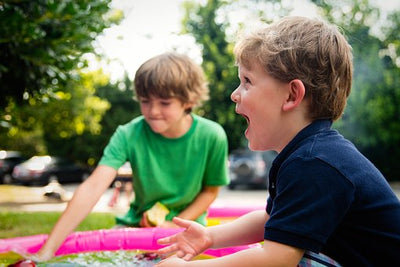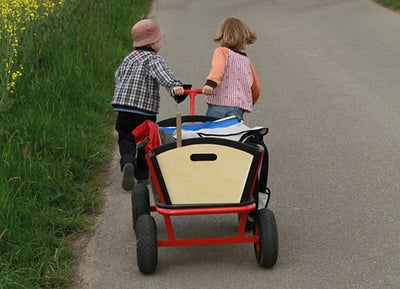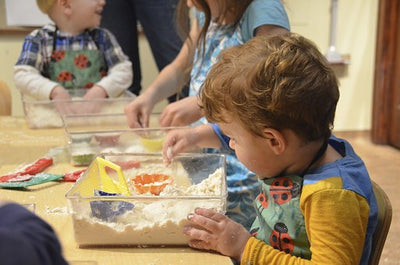
Part 2: The First Stage of Play
By Jeana Kinne, MA and Leia Knight M.Ed
Spectator Play: 2 - 2.5 yrs
Welcome back to the language series: Language Leaps! Last time we talked about general language development and what to look for as your child grows. Today, we are going to investigate the next stage of both language and social development: Spectator Play.
This is the stage when your cute munchkin is starting to really notice other children. It's called spectator play because your child is literally just watching other children play. Just like a fan in the stand at a football game. When a child is only watching their peers play, it always makes my heart hurt a bit because they appear isolated. While I do feel a bit sad, I myself have to recognize that it's a stage.
Developing language in play happens in stages. If your child is older than three, I would be more concerned that they're only watching their peers play, but keep in mind that this is part of the natural progression of your 2-year-old's play development.
How can YOU support language development and play skills in this stage? The answer: Narration

Before your child can just jump in and play, they have to learn how to play. Watching and observing is how we, as adults, initially learn new skills, whether we're watching a professor write an equation on the whiteboard or discreetly listening to a conversation to try to learn someone's name.
Remember the sports analogy about your child as a spectator in the stands? Well every sport has a sports caster and in this scenario that is you. Your job is to talk about what's happening in your child's world and point out important 'plays' (pun intended) ;) of the kiddos in your child's environment.
If you're at the park and your child is watching other children play tag, you would narrate what's going on by saying something like "Those kids are playing tag. The boy running is 'it' and he's trying to catch the other kids. That looks like fun!" When you provide that sports cast, you're drawing your child's attention to their peers, explaining what they're playing and how the game works.

Vocabulary to Teach While Narrating
The other big thing to do when you're a sports caster is to teach your child the words they need to develop their social skills. In early social skills development, there are three types of vocabulary that your child needs. These vocabulary categories are: perception, emotion and cognition.
Perception and emotion are the types of social vocabulary that your child first learns how to use and during the your child's stage of Spectator Play, it's a golden opportunity to really emphasize the words for your child needs to understand and describe perception and emotion.
Perception words are what you would use to describe how you interact with your world like "I see," "I hear," "I feel," "I smell," and "I taste."
The words for emotions are "Happy, sad, excited, frustrated, disappointed," etc.
Vocabulary for cognition include: "I think," "I know," "I feel," "I sense," "I guess," "I wonder," "I perceive," and "I suspect."
So as you're being your child's sports caster, talk not only about what other children are doing but also their emotions and how they are interacting with their environment. You could say something like, "See that boy? I think he looks sad. Maybe he's sad because he dropped his ice cream cone."

The Spectator Stage typically lasts from when your child is 24-30 months old. Soon your child will develop more advanced play skills. The next post in this series will describe typical play skills for children ages 2.5 through 3 years old.
Remember that all children learn differently and at different paces. Development is affected by children’s exposure to a variety of situations. This is a great age to start attending mommy and me classes, music classes or join a play group in your area.
For activities that you can complete with your child which promotes social skills and language development, please view the JDEducational Social Skills Activity Guides.
About the Authors:
 Jeana Kinne is an Early Childhood Developmental Specialist with a Masters in Education. She currently works with infants and toddlers with special needs and blogs at www.jdeducational.com where she shares tips and tricks regarding child development and answers to commonly asked parenting questions. Jeana created simple and engaging learning activities you can do at home with your children, using items you already have at home. You can find these activities at www.jdeducational.com/collections and follow her on Facebook at JDEducational: Preschool & Kindergarten Readiness.
Jeana Kinne is an Early Childhood Developmental Specialist with a Masters in Education. She currently works with infants and toddlers with special needs and blogs at www.jdeducational.com where she shares tips and tricks regarding child development and answers to commonly asked parenting questions. Jeana created simple and engaging learning activities you can do at home with your children, using items you already have at home. You can find these activities at www.jdeducational.com/collections and follow her on Facebook at JDEducational: Preschool & Kindergarten Readiness.
 Leia Knight is Deaf Educator specialized in Listening and Spoken Language. She developed Language for the Playground to answer the WHY and HOW questions. Why children need social and language skills, why certain skills are important, how to teach these skills, and how these skills affect a child’s functioning in the real-world. Leia discusses strategies, tips and research to answer all your language, listening and social skills questions at languagefortheplayground.com.
Leia Knight is Deaf Educator specialized in Listening and Spoken Language. She developed Language for the Playground to answer the WHY and HOW questions. Why children need social and language skills, why certain skills are important, how to teach these skills, and how these skills affect a child’s functioning in the real-world. Leia discusses strategies, tips and research to answer all your language, listening and social skills questions at languagefortheplayground.com.



